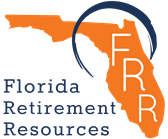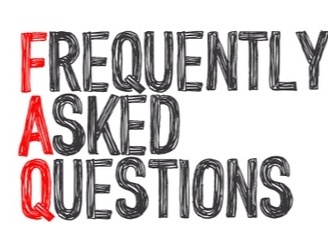How Would You Like To Be Paid?
It's common knowledge that most lottery winners take the lump sum payout option rather than a monthly income, but why is it that most FRS members choose the opposite? We think it is because there is a gap in understanding the difference between the two FRS plans.
To help illustrate the difference between the two plans, let us introduce our imaginary friend Carl and how he learns about his FRS retirement options throughout his career.
Meet Carl
Carl is back at his old high school, starting his career as an English teacher and football coach. He’s 25 years old and has a whole world of opportunity out in front of him. For now, his biggest worries are what video game to buy next, where he’s headed on Spring Break, and avoiding the meatloaf in the school cafeteria at all costs. Retirement? That’s decades away from now. Carl fills out the form for the FRS pension plan and doesn’t give it a second thought.


Meet Career Carl
He’s 10 years into his career as an FRS employee. He’s finally gotten comfortable with the students calling him “Sir”, he’s won Teacher of the Year, and he even tried the lunchroom meatloaf recently (he had to go to the emergency room). He’s gotten a bunch of mail recently about another option for his FRS retirement fund called the Investment Plan. But Carl doesn’t play the stock market and still thinks retirement is way out past the horizon, so he sticks to what he knows and holds onto his pension plan.
Meet Uncertain Carl
Carl gave a girl detention yesterday when she pointed out he seemed to have more gray hair than her dad does. Sure, he’s almost 55, but he’s not THAT old. Still, locking in his retirement plan now wouldn’t hurt. Several of his older coworkers have told him about DROP before they hung up their chalk and erasers, and he’s thinking it makes sense. But the more research he does, the more worried he gets. DROP’s interest rate changed from the previous 6.5% when he was hired, to now just 4.0%, and programs like COLA froze in 2011. Does the pension plan still make the most sense for him?


Carl, Meet a 2nd Choice
Carl couldn’t make heads or tails of the investment vs. retirement plans, so he called on a professional. Now he’s learned he can retire on the pension plan and earn $25,000/year, or retire on the investment plan and earn a one-time lump sum of $400,000. Whoa! Leave the teaching industry with $400,000 in his pocket? Carl had no idea that was even possible!
Carl, Meet Confusion
After his initial excitement about the big payoff, Carl is worried. If he spends $25,000 on living expenses, he’ll run through that $400,000 in only 16 years. That would leave him with nothing left by age 81. He has a lot more living to do beyond that! He needs to get back to his financial professional and get more information as soon as possible.


Meet Educated Carl
Meet educated Carl. His worries about spending that $400,000 too quickly are unfounded. He can take the lump sum and invest it in the market. Carl does some reading and as an example learned that the S&P500 has averaged an 10.23% return rate for the past 90 years!* Carl wants to be more conservative though, and puts together an investment strategy with a target of 7% annual rate of return based on his individual risk tolerance, objectives, and goal. When the professionals help Carl crunch the numbers, he realizes if the market maintains this average every year, he could be possible making $28,000 in interest alone every year.
That’s 12% more money than through the pension plan, or $3,000 more each year. If the rate stays consistent, he could still have at least $400,000 in the bank when he’s 100! Also, Carl’s spouse will be able to benefit from 100% of his account balance and the same income if anything happens to him, rather than taking a reduced benefit like on the pension plan.
*https://www.officialdata.org/us/stocks/s-p-500/1926
Meet Skeptical Carl
Is the investment plan too good to be true? Now that Carl is older he knows to be wary of scams. He’s been invested in the pension plan for more than three decades. What if he switches options and it all falls apart? He thinks the pension plan is more reliable, but what he doesn’t know is that it’s gone from 117% funded in 2001 to just 83% funded 20 years later. There are more state employees and they’re living much longer, and nobody wants Carl to know that it’s slowly bankrupting the fund.


Meet Comparative Carl
To make his final decision, Carl prepares a list of pros and cons. Whichever side makes the most sense will be the one he goes with. Carl jots down his pension plan positives - say that three times fast - first.
The pension plan is familiar like a pair of comfortable slippers, it has promised to pay him a fixed amount of money for the rest of his life, and he doesn’t have to lift a finger to decide how the money should be invested. The downside to the pension is that he has less choice in how he takes his income in retirement, how his money is invested, and his beneficiary options.
On the investment plan pro list, Carl is surprised as the number of reasons to switch his choice piles up. He can pick when he retires, rather than going strictly by the state’s rules. If he gets sick, he can spend his retirement dollar as he sees fit. He can be flexible with his beneficiaries instead of being forced to choose just one person. He can choose how much money his monthly benefit is and change it at any time. He can alter his investment strategy as well and decide exactly how and why he wants to spend his money. The drawback to the investment plan is that he has the responsibility of choosing his investments and the risk that comes with that.
Meet Confident Carl
He’s done his research, crunched the numbers, and gotten advice from a professional. He’s leaning towards the investment plan because of the flexibility it offers him. He realizes that for some of his fellow state employees, the pension plan is still a sound choice, but the smartest decision any of them can make is to gain as much knowledge as possible. Making that decision blind can cost you income in retirement!

Meet YOU!
What your numbers will look will be different from Carl's depending on your age, years of service, income, and other factors. Therefore, it is very important that each FRS member become knowledgeable of their benefit options as they plan for retirement. You don't want to wind up leaving any money on the table, and we are here to help. If you haven't compared your benefits before, click the link below and we will help you learn what your options are so you can decide for yourself how you would like to be paid in retirement.
https://employer.frs.fl.gov/forms/Legislation_2011.pdf
https://www.flsenate.gov/Session/Bill/2023/7024
https://employer.frs.fl.gov/forms/2000-01_Annual_Report.pdf (page 10)
The above illustration does not take into account the effect of any state or federal taxes. The performance of the investment, 7%, in the illustration is hypothetical and in no way relates to the actual or expected performance of any investment. The results of an investment may differ substantially. Investing involves risk and there is no guarantee of investment results.Florida Retirement Resources and GWN Securities, Inc. are non-affiliated companies. Florida Retirement Resources and its advisors do not
represent, nor are they affiliated with the Florida Retirement System (FRS).
Your FRS, Your Choice eBook
Download your free copy of our book, learn about your options and your benefits the FRS is offering you!
Don't know the questions to ask?
The most frequently asked questions from FRS members in the past years.
FRS Topic Blog
Where we cover the most recent topics FRS members are faced with approaching retirement





